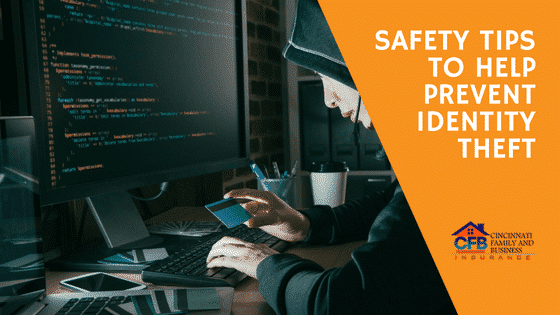
Safety Tips To Help Prevent Identity Theft
In today’s world of high technology, identity theft is one of the most common dangers for anyone managing their financial/credit affairs online electronically. The convenience and at times necessity of online banking and bill management have left many users unsuspecting victims. While dangers do persist, there are safety tips that everyone can use to minimize this threat to personal information and financial data.
One of the simplest ways to keep personal and financial information out of the hands of individuals intending on stealing personal data is frequent credit report monitoring. Closely monitoring your personal credit report can help in the detection of unfamiliar and/or inaccurate debt that has been reported to credit agencies. The sooner fraudulent data is discovered on a credit report, the easier it will be to report and resolve the matter with minimal damage to personal credit.
Keeping your social security number out of the hands of malicious identity thieves is another safety tip that can greatly reduce the chances of becoming a victim. This may seem difficult to most people since nearly every credit card company and financial institution require a potential customer’s social security number to open and maintain personal accounts.
The Internal Revenue Service has a potential alternative to using your personal social security number for such transactions. A federal tax identification number can be issued through the IRS which can legally be used in place of the social security number. It is much more difficult for those engaging in such activity to access and use a federal tax identification number fraudulently.
Another method of preventing identity theft is to choose and use passwords wisely when engaging in online activity. Among safety tips, this is the most often misused measure individuals fail to take seriously when attempting to keep their personal information secured. It is recommended that passwords for banking, email and other sensitive information be changed often in order to offset the chance of becoming a victim. It is also pertinent to chose a password that is complex enough to deter identity thieves from being able to access personal data.
Equipping your personal computer with antivirus and identity theft protection software can serve as another safety measure against having personal information stolen. There are several inexpensive software applications that can be imperative as a first line of defense.
Properly discarding credit offers, receipts and other documents that arrive via the mail is an overlooked measure that many individuals fail to do. A common practice for identity thieves is to steal unsecured mail that has been either thrown away or left in the mailbox by the rightful recipients. Nefarious individuals have easy access to opening credit lines and other accounts in your name if they are able to have access to any of these items.
While there exists a vast amount of additional safety measures individuals can use to protect themselves from identity theft, the tips mentioned will greatly reduce the threat and help to keep such information out of the wrong hands.

Comments
Not found any comments yet.